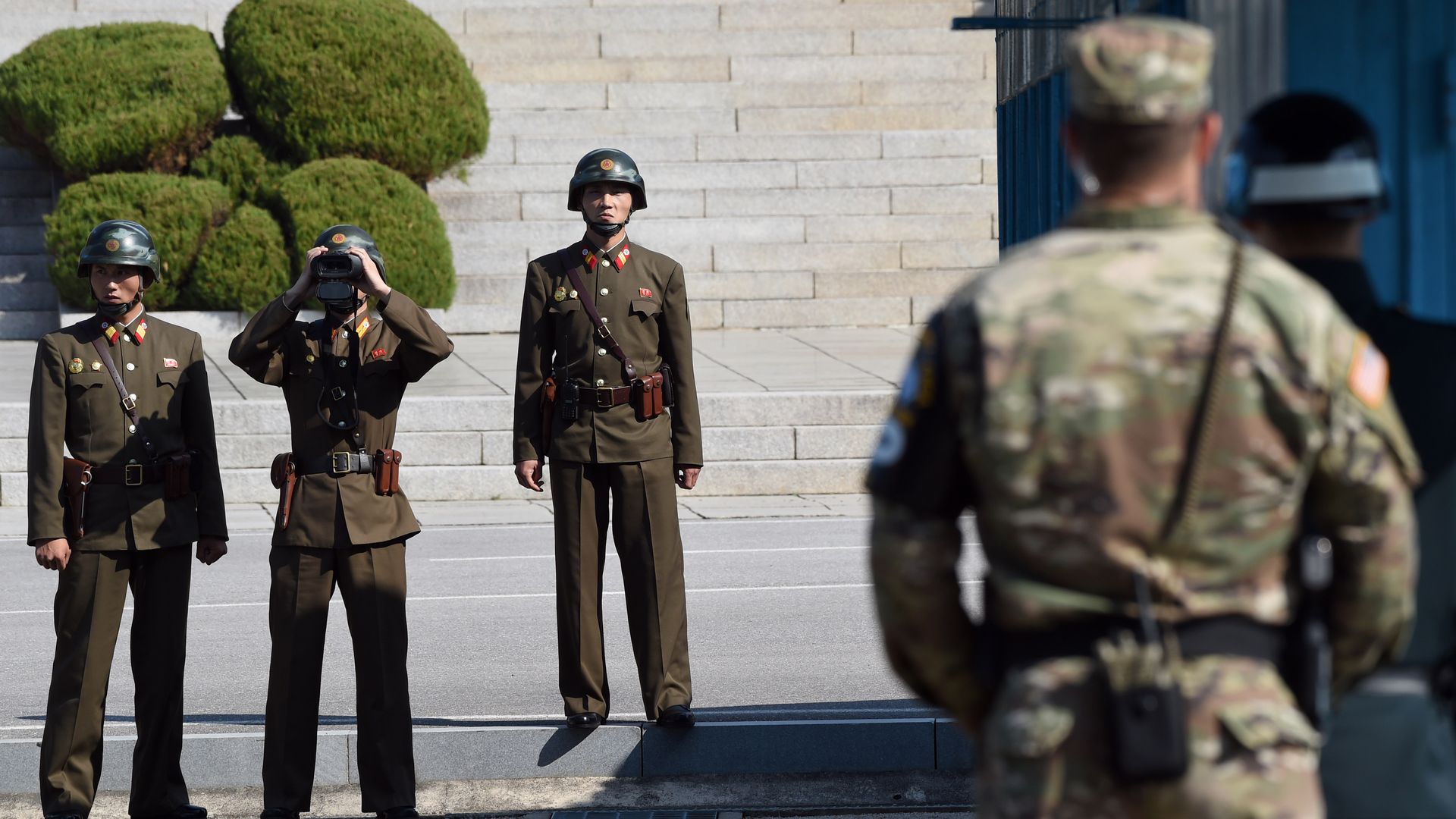Updated May 4, 2018 - World
Expert VoicesThe high-stakes gamble of reducing troops on the Korean Peninsula
Add Axios as your preferred source to
see more of our stories on Google.

North Korean soldiers look at the South side of the border between North and South Korea on October 27, 2017. Photo: Jung Yeon-Je/AFP via Getty Images
